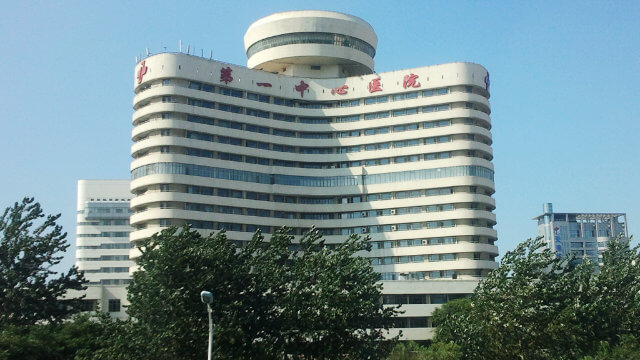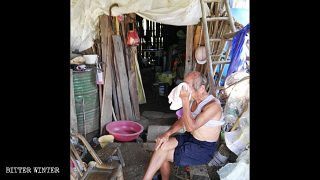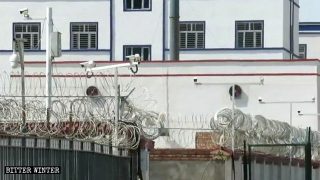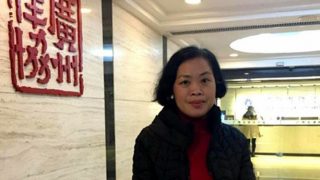A woman from northern China shares a tragic story of how doctors promised to help her ill husband, but she was lured into agreeing to donate his organs instead.
by Wang Gong
Regulation on Human Organ Transplantation, adopted in 2007 by the State Council – China’s chief administrative authority – stipulates that, “The donation of human organs shall be made under the principle of free will and free of charge,” and that trades in human organs are forbidden. Regardless, people in China can receive large sums of money for the “donated” organs of their deceased relatives, as proves the story which a woman from a village in northern China recounted to Bitter Winter. Since she requested anonymity, we will call her Ms. Jiang.
Hopeless diagnosis, and then – a promise of hope
A year ago, Ms. Jiang’s husband, who was partially paralyzed, was hospitalized when his condition started deteriorating. After a week in the hospital, the man suffered a stroke, and doctors said there was nothing they could do about it: he will remain in a vegetative state for the rest of his life.
“I collected money from everyone I could for his treatment. I asked the attending doctor if my husband had any chance to recuperate at home, but instead of giving me a definite answer, he kept repeating that my husband’s condition was very bad,” Ms. Jiang remembered.
Without clear answers, Ms. Jiang was scared to discharge her husband from the hospital. During the next few days, the doctor approached Ms. Jiang on several occasions, informing her about the new procedure in the Red Cross Hospital of Tianjin, a metropolis on the Bohai Sea, which supposedly provides free treatment for critical patients like her husband. This possibility was the only ray of hope for Ms. Jiang, who was too poor to afford the treatment her husband needed.
The doctor said that he was willing to help Ms. Jiang to contact the Red Cross Hospital, but only if she accepted the conditions – if the treatment failed, her husband’s organs should be donated in exchange for monetary compensation. To be admitted there, her husband had to be discharged from the hospital he was in, give up the treatment he was receiving, and wait until he is accepted at the Red Cross Hospital.
“I thought it would be better to accept the doctor’s advice than to watch my husband dying in pain because I had no money to help him,” Ms. Jiang told Bitter Winter. “Without further consideration, I asked the hospital to discharge my husband. Three days later, an ambulance was sent to our home. The attending doctor assured me that it was from the Red Cross Hospital.”
Mysterious examination in an ambulance
“On the way to the hospital, my husband kept his eyes open and breathed normally. He looked well,” the woman continued her story. “When we passed Beijing, the ambulance stopped at a secluded place, and several people got into it. One of them said he was an anesthetist. They asked me to wait in another vehicle while they were examining my husband.”
The examination lasted for about two hours, after which Ms. Jiang was allowed to get back into the ambulance. “My husband’s eyes were closed, and a tube was connected to his mouth – one of the people told me that it was a respirator. I suddenly felt sad and didn’t ask much,” the woman still vividly remembers the feeling she had when she saw her husband. She didn’t know then that she would never see her husband opening his eyes.
At 10 p.m., they arrived at a hospital in Tianjin: but it was the First Central, not the Red Cross Hospital. Ms. Jiang’s husband was placed in an intensive care unit. She was not allowed to take care of him and was sent to a hotel instead.

The Tianjin First Central Hospital boasts for being the largest organ transplantation hospital in Asia. Bitter Winter has previously reported that Mr. Kim Hyeoncheol, a South Korean TV reporter, conducted undercover investigations in this hospital, disclosing that patients had to wait as little as two weeks for a new organ and that a liver transplant would typically cost about $ 170,000.
Death instead of treatment
On the third day at the hospital, a doctor asked Ms. Jiang to sign a few-page document, which she didn’t understand completely. “I was distraught and felt ignorant. The doctor just told me that by signing, I agree to donate my husband’s organs if the treatment fails,” Ms. Jiang said.
Soon after she signed the documents, her husband’s condition began to worsen. “The next morning, my husband was declared dead, and the hospital took his organs. I still don’t know if he was alive or dead when his organs were harvested,” Ms. Jiang said with pain. “His body was fully covered when they took him out of the operation room. I was not even told how many organs had been harvested from his body.”
The woman remembered that the doctor who made her sign the document once hinted that his husband’s corneas, liver, and kidneys were suitable for transplantation. The same doctor transferred 150,000 RMB (about $ 21,000) to her bank account afterward. She never received any records about her husband’s organ transplantation, only his hospitalization and medical reports, hospital charges, and his death certificate.
Mr. Jiang now realizes that the promise to give her husband the treatment he needed was a hoax to harvest his organs. But a simple farmer like Ms. Jiang can do nothing about it in China.
Source: Bitter Winter



